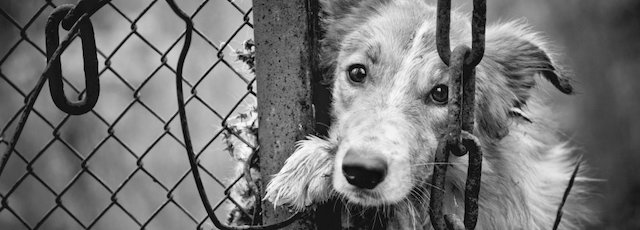
The National Sheriff’s Association — the organization that represents rogue sheriffs like Sam Page, David Clarke, and Tom Hodgson and which celebrates the abuses of Customs and Border Patrol officers — has a soft spot for animals. Yes, the NSA actually endorsed legislation on animal cruelty, arguing that there is a link between animal cruelty and cruelty to humans. And we would not disagree.
But the sheriffs didn’t seem to appreciate the irony of defending puppies while torturing humans in the county jails they themselves operate.
Not to be out-done by the sheriffs’ hypocrisy, Donald Trump signed the Preventing Animal Cruelty and Torture Act (PACT) last month, giving rights to animals that he refuses to extend to Central American children in his concentration camps.
But concern for animal rights while simultaneously showing indifference to human suffering is also a feature of Massachusetts law.
Massachusetts has animal cruelty statutes which provide for up to seven years in prison for the abuse of animals. In 2016 the Attorney General charged ten people with the mistreatment of over a thousand animals on a farm in Westport. All were allowed to plead guilty and serve probation, which outraged animal rights groups. When it comes to humans, the AG’s office has a civil rights division but has not similarly intervened in behalf of prisoners suffering and dying in the state’s jails.
The rights of dogs and cats in the Commonwealth have a leg up — actually four legs up — on the rights of their human counterparts. According to the Massachusetts General Laws, Part I, Title XX, Chapter 140, Section 137C:
“The mayor of a city, the selectmen of a town, the police commissioner in the city of Boston, a chief of police or an animal control officer may at any time inspect a kennel or cause the inspection of a kennel. If, in the judgment of such person or body, the kennel is not being maintained in a sanitary and humane manner or if records are not properly kept as required by law, such person or body shall, by order, revoke or suspend the license for the kennel.”
That’s right. Kennels may be freely inspected by public officials if conditions are believed to be unsanitary or inhumane. This is a right that not even state legislators have in Massachusetts “corrections” facilities.
For dogs, state law likewise regulates confinement:
“No person owning or keeping a dog shall chain or tether a dog for longer than 5 hours in a 24–hour period and outside from 10:00 p.m. to 6:00 a.m., unless the tethering is for not more than 15 minutes and the dog is not left unattended by the owner, guardian or keeper.”
Your eyes are not playing tricks on you. “No excessive solitary” for dogs is written into Massachusetts law — while mentally-ill Bristol County prisoners are going to have to wait for the courts to decide if the overuse of solitary confinement is legal.
Under Massachusetts law a dog must be given adequate space to move, and environmental considerations (heat and cold) are strictly regulated. Specific types of inhumane treatment are prohibited:
“(1) filthy and dirty confinement conditions including, but not limited to, exposure to excessive animal waste, garbage, dirty water, noxious odors, dangerous objects that could injure or kill a dog upon contact or other circumstances that could cause harm to a dog’s physical or emotional health;
taunting, prodding, hitting, harassing, threatening or otherwise harming a tethered or confined dog; and
subjecting a dog to dangerous conditions, including attacks by other animals.”
No such protections exist for the safety and well-being of humans confined in Massachusetts jails and prisons.
Finally, it boggles the mind that “inhumane” is the word chosen by people to describe mistreatment of animals — but not of fellow humans who “deserve what they get” in prisons that “are not country clubs.”
But there is a solution. By simply re-designating jails as “kennels” — a name change prison rights advocates point out already describes the inhumane conditions in state prisons and jails — human prisoners in Massachusetts will finally receive the legal rights their four-legged friends already have.
Comments are closed.